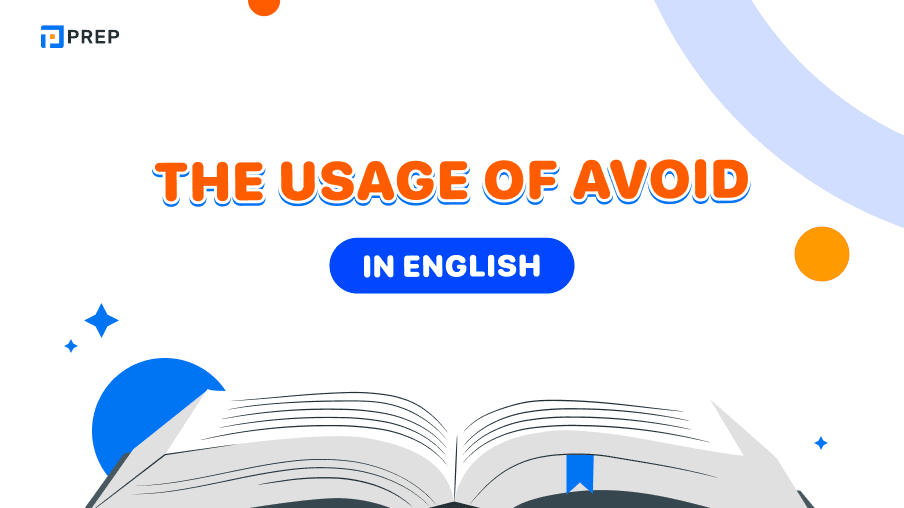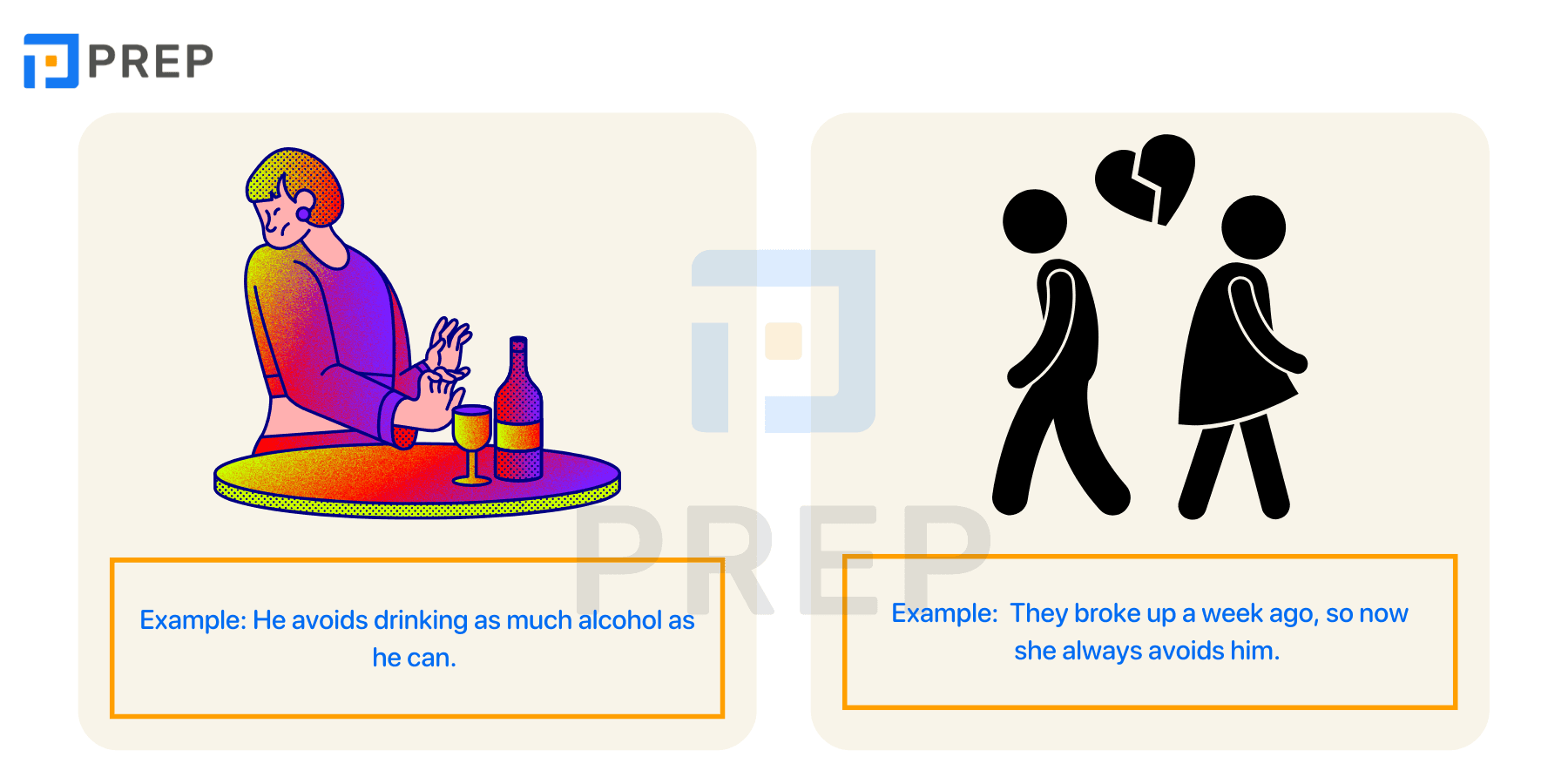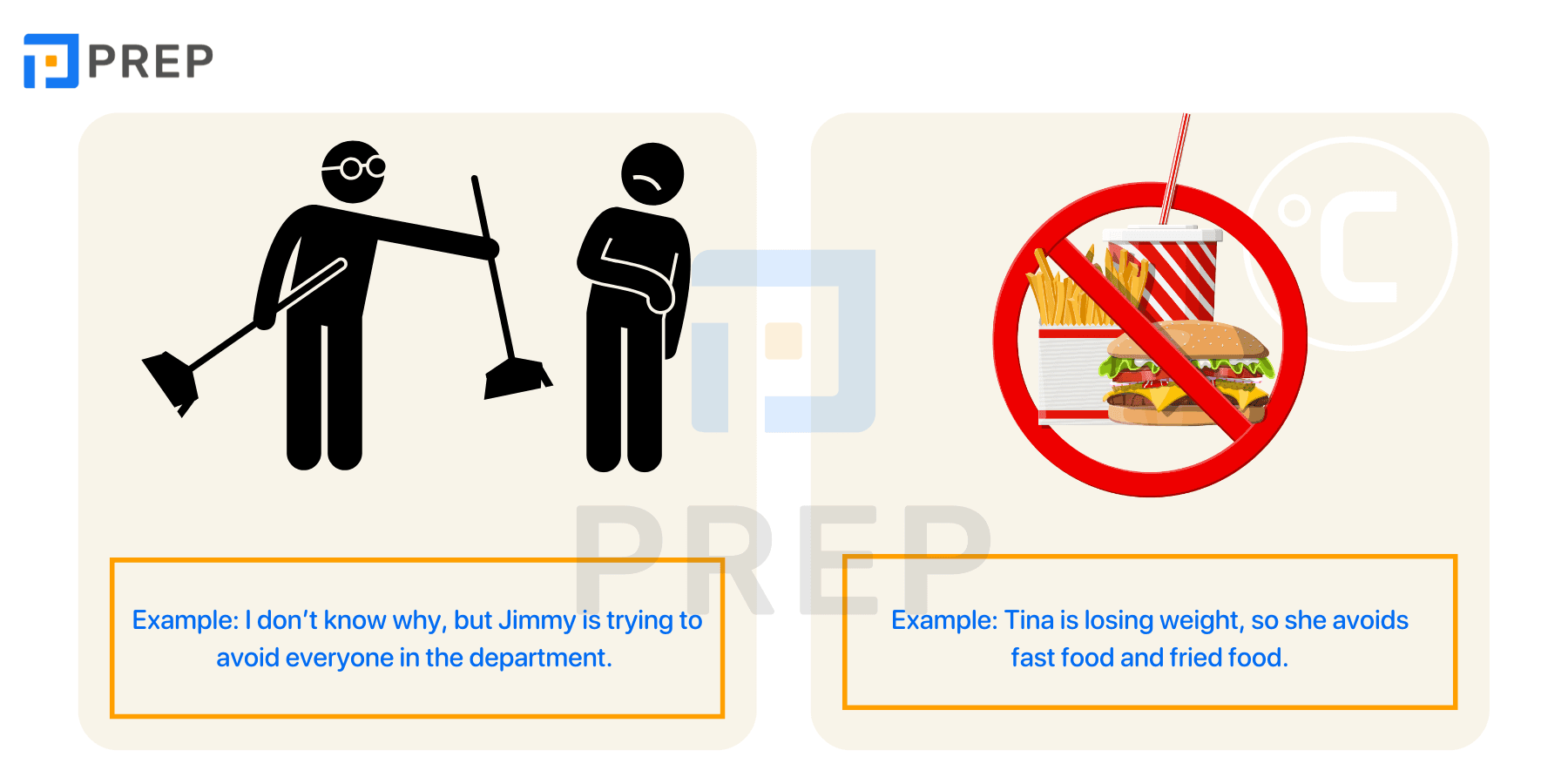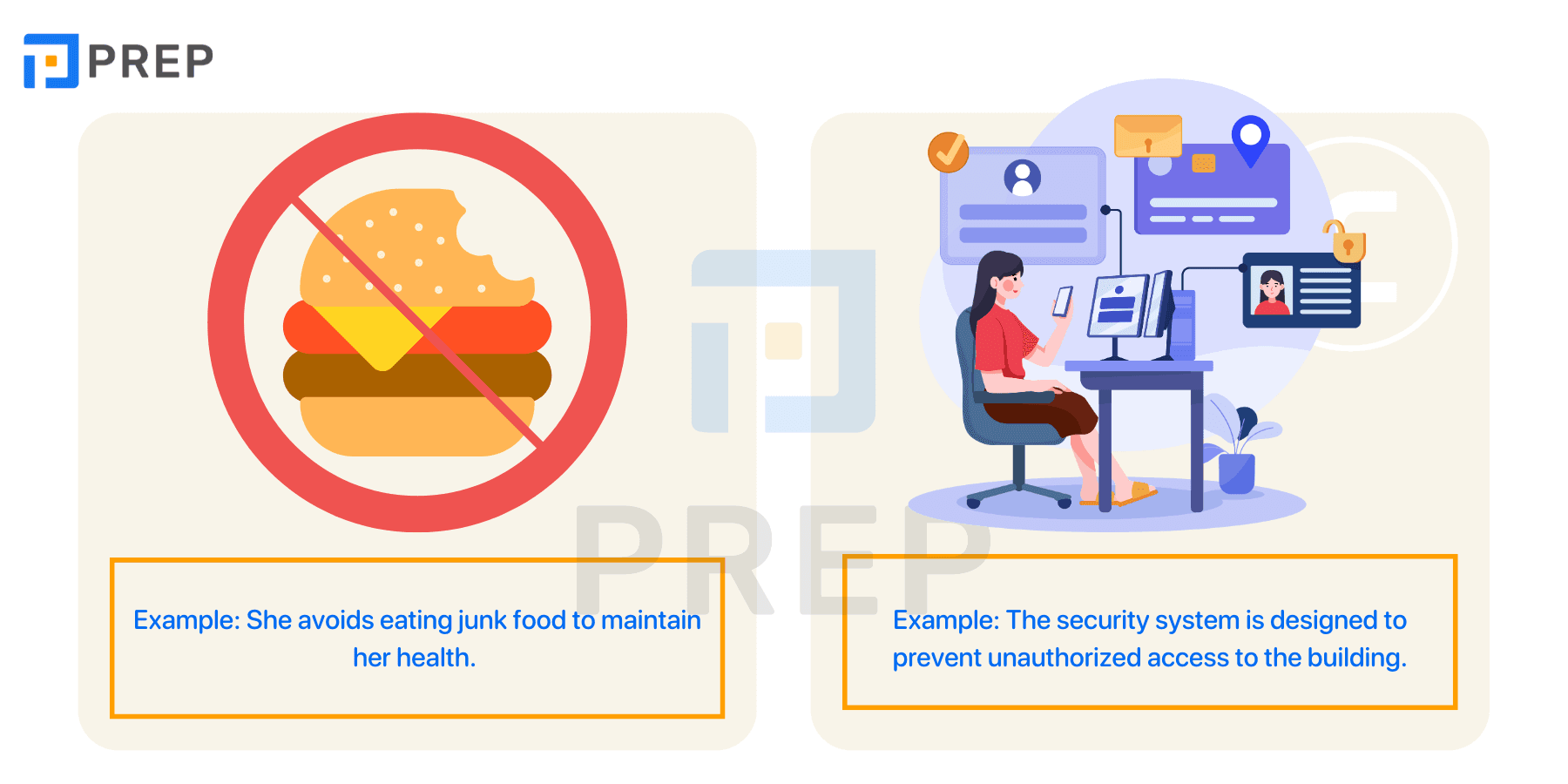Mastering the Strategic Usage of Avoid in English Communication
Mastering the verb "avoid" represents a cornerstone achievement in developing sophisticated English communication skills. This versatile verb appears extensively across academic examinations, professional correspondence, and everyday conversations. Yet many English learners encounter challenges when attempting to harness its full expressive potential. This comprehensive exploration delves into the nuanced applications of Avoid in English, unveiling strategic usage patterns that distinguish proficient speakers from novice learners.

I. What is Avoid in English?
1. Definition
Avoid is pronounced /əˈvɔɪd/ and serves as a verb. The Avoid meaning in English is: to stay away from someone or something; to prevent something from happening, or to not allow yourself to do something. Example:
-
Jill is avoiding me.
-
He avoids drinking as much alcohol as he can.
-
They broke up a week ago, so now she always avoids him.

2. Common phrasal verbs and idioms
|
Common phrasal verbs and idioms with Avoid in English |
Meaning |
Example |
|
Avoid doing |
to prevent something from happening, or to not allow yourself to do something |
She tried to avoid making any mistakes in her report. |
|
Avoid someone/something |
to stay away from someone or something |
He avoids his father at family gatherings. |
|
Avoid the issue |
If you avoid something unpleasant that might happen, you take action in order to prevent it from happening |
Politicians often avoid the issue of climate change in their speeches. |
|
Avoid something like the plague |
to be determined to avoid something completely |
She avoids talking to her ex-husband like the plague. |
|
A danger foreseen is half-avoided |
Being aware of a danger helps you to prepare and avoid the full brunt of it |
In the winter, Lara always listens to the weather forecast so that she’s never caught by surprise by a snowstorm. A danger foreseen is half avoided, after all. |
|
Avoid evil and it will avoid thee (proverb) |
If you don't engage with bad or malevolent people, things, or situations, then you won't fall victim to them. |
I can't believe she's hanging out with those ne'er-do-wells. I always advised her, "Avoid evil and it will avoid thee." |
|
To fall into/avoid the trap of doing something (idiom) |
to do something that seems good at the time but is not sensible or wise, or to avoid doing this |
Parents often fall into the trap of trying to do everything for their children. |
3. Avoid synonyms in English
|
Avoid synonyms in English |
Example |
|
Evade /ɪˈveɪd/ |
Peter tried to evade the question by changing the subject. |
|
Elude /ɪˈluːd/ |
The suspect managed to elude the police for several weeks. |
|
Sidestep /ˈsaɪd.stɛp/ |
Anna sidestepped the issue during the meeting. |
|
Bypass /ˈbaɪ.pɑːs/ |
They decided to bypass the main road due to heavy traffic. |
|
Shun /ʃʌn/ |
John was shunned by his colleagues after the scandal. |
II. Structure with Avoid in English
The verb "avoid" functions within a specific grammatical framework that determines its syntactic behavior and semantic expression. Understanding this architectural foundation enables precise and effective communication across diverse contexts.
Core Formula:
Avoid + Noun/pronoun/V-ing
Example:
-
I don’t know why, but Jimmy is trying to avoid everyone in the department.
-
Tina is losing weight, so she avoids fast food and fried food.
-
Quinn seems to avoid visiting her parents.

III. How to use Avoid in English
The implementation of "avoid" varies significantly based on communicative intent, social context, and desired emphasis. Recognizing these distinctions elevates language proficiency from basic comprehension to sophisticated expression.
1. To stay away from someone or something, to prevent something from happening or to not allow yourself to do something
For example:
-
Chris doesn’t like kids, he always avoids going to the entertainment park.
-
Do you think Sarah is avoiding me?
-
Because her teeth are hurting, she avoids eating ice cream.
2. To prevent something from a bad event or occurrence.
For example:
-
Understanding different viewpoints is a good start toward avoiding conflict.
-
I told Nick to leave the bar early to avoid fighting with some guys.
-
To avoid car accidents, we should not drive too fast.
3. Some notes on using Avoid in a sentence
Proper conjugation aligns with grammatical subjects and temporal structures:
-
Present Simple: Quagmire habitually avoids encounters with former romantic partners during social gatherings.
-
Present Perfect Continuous: She has been avoiding direct communication since the misunderstanding occurred last month.
-
Modal Construction: Students should avoid submitting assignments without thorough proofreading and revision.
Fundamental Grammar Rule: "Avoid" exclusively combines with nouns, pronouns, or gerund forms (V-ing), never with infinitive constructions (to + base verb).
-
Correct: The manager chose alternative communication channels to avoid creating departmental tensions.
-
Incorrect: The manager chose alternative communication channels to avoid to create departmental tensions.
IV. Distinguishing Avoid and Prevent
Distinguishing between "avoid" and "prevent" requires understanding their fundamental operational differences, temporal orientations, and agent relationships. This distinction marks advanced English proficiency and prevents common communication errors.
|
Criteria |
Avoid |
Prevent |
|
Structure |
Avoid + Noun/ Pronoun/ V-ing |
Prevent + someone + FROM something/V-ing (must include the preposition FROM) or Prevent something |
|
Meaning |
To stay away from someone or something, to prevent something from happening or to not allow yourself to do something |
To stop something from happening or someone from doing something, often through preventive measures. |
|
Usage |
To prevent an event that has already happened or is happening (referring to the past and present). |
To stop an event that has not yet occurred (predicting the future). |
|
Example |
She avoids eating junk food to maintain her health. |
The security system is designed to prevent unauthorized access to the building. |

V. Exercises using Avoid in English
Developing mastery requires systematic practice across various contexts and complexity levels. These exercises progress from basic recognition to advanced application.
1. Exercise
Exercise 1: Rewrite the sentences using Avoid
-
Fishermen should not go to the sea today because of the coming storm.
-
Study harder if you don’t want to get a low score.
-
I chose another road to go because there was a traffic jam.
-
Why don’t you talk to your brother at school?
-
We need these rules or there will be conflict between employees.
Exercise 2: Choose between Avoid or Prevent and fill in the blanks appropriately.
-
This lesson was aimed to __________ misunderstanding.
-
This organization is trying to ________ people from using plastic.
-
Jane wants to __________ me from playing extreme games.
-
Group members can’t __________ conflicts all the time.
-
________ smoking in the public, please.
2. Answer
|
Question |
Exercise |
|
|
Exercise 1 |
Exercise 2 |
|
|
1 |
Fishermen should avoid going to the sea today because of the coming storm |
avoid/ prevent |
|
2 |
Study harder if you want to avoid a low score/ getting a low score. |
prevent |
|
3 |
To avoid the traffic jam, I chose another road. |
prevent |
|
4 |
Why do you avoid seeing your brother at school? |
avoid |
|
5 |
These rules are made to avoid conflict between employees. |
avoid |
The comprehensive framework presented here establishes solid foundations for incorporating Avoid in English effectively into academic writing, professional correspondence, and international communication. Understanding its grammatical requirements, semantic nuances, and contextual applications empowers English learners to communicate with precision and confidence.

Hi I'm Chloe, and I am currently serving as an Product Content Administrator at Prep Education. With over five years of experience in independent online IELTS study and exam preparation, I am confident in my ability to support learners in achieving their highest possible scores.
Comment
Premium content
View allPersonalized roadmap
Most read












